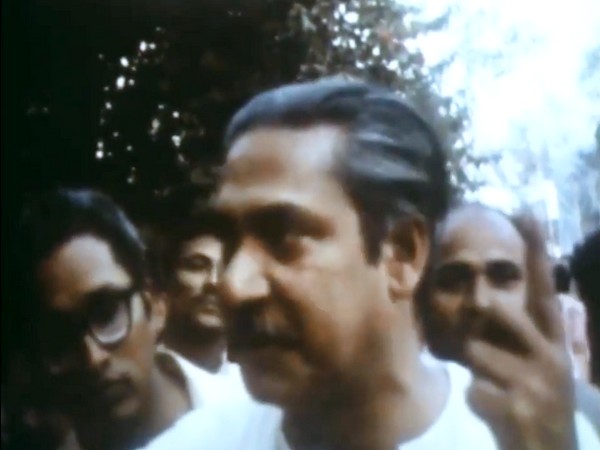When Sheikh Mujibur Rahman challenged Yahya Khan's army
Sheikh Mujibur Rahman, known as the 'Father of the Nation' in Bangladesh, openly challenged the troops of then West Pakistan in 1971 saying that 70 million people of Bangladesh stand behind him to face the army.

- Country:
- Bangladesh
Sheikh Mujibur Rahman, known as the 'Father of the Nation' in Bangladesh, openly challenged the troops of then West Pakistan in 1971 saying that 70 million people of Bangladesh stand behind him to face the army. Heavy fighting was going on in East Pakistan (now Bangladesh) as West Pakistan troops, under the orders of President Yahya Khan, moved to crush a breakaway movement led by Awami League leader Sheikh Mujibur Rahman.
In one of his daring interviews, done at a time when West Pakistani troops were on a killing spree against Mukti Bahinis in March 1971, Sheikh Mujibur Rahman said, "I love my people and my people love me. I can die for them and they can die for me because I am fighting for their cause and I want that 70 million people of my Bangladesh should be united". "All the 70 million people are behind me and behind the cause. I want my rights, I want my emancipation, I want to live like a free citizen of a free country," he added.
When a journalist asked Sheikh Mujibur Rahman you mean independence when you talk about rights then he said, "That I don't mean. It can be done in many ways". While reacting to the attack by the West Pakistan army, Sheikh Mujibur confidently said, "If 70 million people are united behind us, what will the army do? We don't care about that. They can suppress my people with bullets?
The struggle for Bengali rights started shortly after birth of Pakistan with two separate territories known as West Pakistan (today's Pakistan) and East Pakistan (today's Bangladesh). The refusal to accept Bengali as a state language of Pakistan in the early years after Partition, economic disparity between the two parts, the hegemony of the West Pakistani ruling elite in Pakistan, martial laws, and a demeaning attitude towards Bengali culture and the Bengali population soured relations between the two parts.
Tensions rose in December 1970 when the Awami League party, led by Sheikh Mujibur Rahman and based in East Pakistan, won the national elections but West Pakistan parties, namely the Pakistan Peoples' Party (PPP), refused to hand over power. In March 1971, using the violence as an excuse, the Pakistan Army intervened to stem the growth of nationalist sentiments in the east.
It recruited local pro-Pakistan Bengalis and non-Bengalis, including members of the Islamic organisation Jamaat-e-Islami, for its operations against Bengali factions. As the violence escalated throughout the summer, a large number of refugees streamed into Indian territory. India intervened militarilyin early December 1971.
The nine-month conflict ended with the surrender of the Pakistani army on December 16. Estimates vary of the number of people killed. The death toll is estimated to have been between 300,000 and 3 million people with hundreds of thousands of women raped by the army. Bangladesh is celebrating Mujib Year from March 17, 2020 to March 26, 2021 with various programmes marking the birth centenary of Father of the Nation. (ANI)
(This story has not been edited by Devdiscourse staff and is auto-generated from a syndicated feed.)










